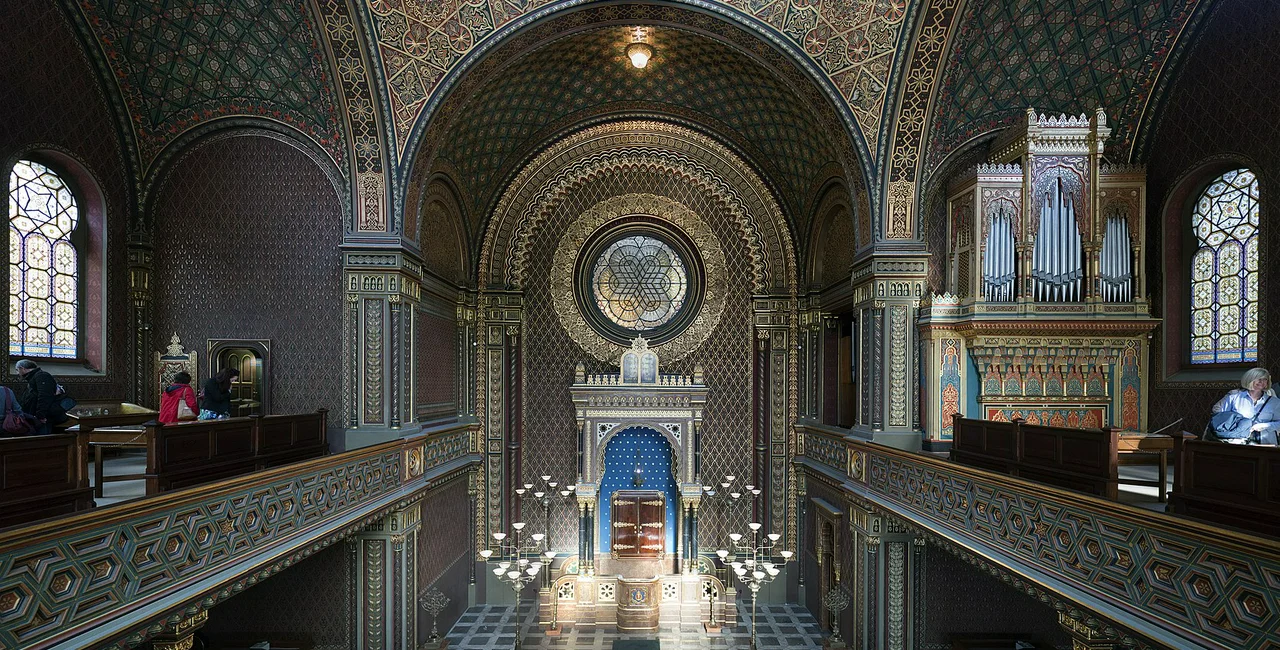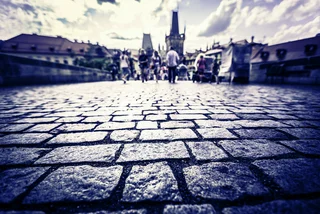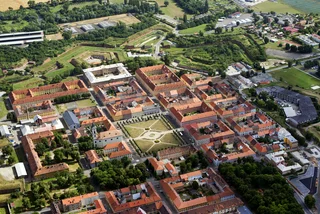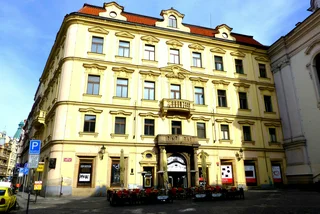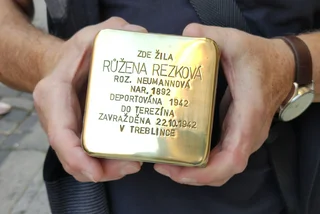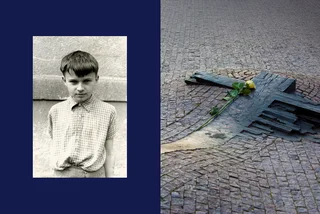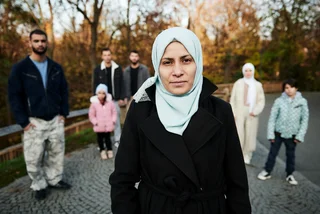International Holocaust Remembrance Day falls on Jan. 27, and this year due to restrictions commemorative events in the Czech Republic will be virtual.
The day is in remembrance of the genocide that resulted in the deaths of 6 million Jews and 11 million others by the Nazi regime and its collaborators during World War II.
PARTNER ARTICLE
The United Nations General Assembly designated the day in 2005, which was the 60th anniversary of the liberation of the Nazi concentration camps and the end of the Holocaust. The extermination camp at Auschwitz-Birkenau was liberated by Soviet forces on Jan. 27, 1945.
The main event in Prague is an online concert from the Spanish Synagogue. The Jewish Museum in Prague and the Jewish Community of Prague will broadcast a gala concert from the newly renovated Spanish Synagogue at 6 p.m. A link to the show will on the Facebook pages of the Jewish Museum in Prague and the Jewish Community in Prague.
Works by Hans Krása, Josef Mysliveček, and Maurice Ravel will be performed by the Doležal Quartet.
Krása was a Czech composer who was killed in Auschwitz. He also helped to organize cultural life in concentration camp at Terezín (Theresienstadt). A street is named for him in Žižkov.
The concert will include a short virtual tour of the Spanish Synagogue and its new exhibition.
Two other events are also organized that day. At 10 a.m., news channel ČT24 will broadcast a commemorative meeting in the Czech Senate with speeches by Czech politicians, members of the Jewish community including Holocaust survivor Michaela Vidláková, and the chairman of the Committee for the Redress of the Roma Holocaust, Čeněk Růžička.
The speeches, in Czech, will be accompanied by a concert of compositions by Gideon Klein performed by David Dorůžka, Robert Fischmann and Martin Novák. Klein, a Jewish composer who was born in Moravia, died in 1945 at the coal-mining labor camp Fürstengrube, some 30 kilometers from Auschwitz.
Before being sent to Auschwitz, Klein was also involved in the cultural life at Terezín. Some of his compositions made there were saved by a friend and turned over his sister after the war ended.
A Czech-Israeli online meeting will be held in English and broadcast at 4 p.m. on the Facebook page of the Czech Ministry iof Foriegn Affairs.
The event, called International Holocaust Memorial Day: Remembering, Perpetuating and Pursuing Justice, will take place in Terezín and Jerusalem.

Israeli President Reuven Rivlin, Foreign Minister Gabi Ashkenazi and Social Equality Minister Itzik Shmuli have promised to attend. The Czech Republic will be represented by President Miloš Zeman, Minister of Foreign Affairs Tomáš Petříček, and Special Representative for the Holocaust Robert Řehák.
Holocaust survivor Dita Krausová, whose story became the subject of the book The Auschwitz Librarian, will also give a speech. US Senate Majority Leader Charles Schumer, European Parliament Vice President Nicol Beer are also supposed to participate.
Prague has several sites and memorials that people can visit, at least from the outside. The former Jewish neighborhood in Josefov in Old Town has the six synagogues, the Rococo-style Jewish Town Hall with its anti-clockwise clock, and the Jewish Ceremonial Hall. The Old Jewish Cemetery is largely hidden behind a high wall.
There is also the New Jewish Cemetery in Prague’s Žižkov district, next to the Želivského metro and tram stop. Author Franz Kafka’s eight-sided tombstone is there. The smaller Old Jewish Cemetery in Žižkov is located next to the Žižkov TV Tower. The main part of that cemetery was destroyed to make room for the tower. There is also a somewhat hidden Old Jewish Cemetery in Smíchov, located on Radlická Street.
Former synagogues can also be seen in Palmovka, Anděl, Karlín, and other neighborhoods across Prague.
Across the city, there are memorial cobblestones to mark where victims of the Holocaust and Nazi occupation used to live. There are now more almost 400 in Prague. They are called Stolpersteins, which means means “stumbling stones,” while the Czech name “kameny zmizelých” means stones of the disappeared.
The stones, with a thin metal plaque of metal on a concrete base, are made by artist Gunter Demnig, who began the project in Cologne, Germany, in 1992. The first stones were placed in the Czech Republic in Prague’s Josefov district in 2008. Aside from Prague, they can be found in Brno, Olomouc, and Ostrava plus some smaller towns.
At the former railway station at Bubny there is a monument called the Memorial of Silence, with a train track running to the sky. The station in a brownfield in Prague’s Holešovice district was a transit point during the Holocaust, where Czech Jews were sent on trains to Terezín.












 Reading time: 4 minutes
Reading time: 4 minutes 